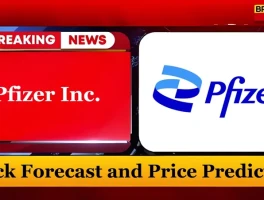Pfizer's Second Act: Why Patience is the Smartest Investment
Pfizer. The name used to conjure up images of scientific breakthroughs, a leader in the fight against global pandemics, and a stock that seemed as safe as houses. But lately? It’s been more like a rollercoaster, plummeting almost 50% over the last three years. Headlines scream "dump your shares!" and analysts are whispering about missed opportunities. But I'm here to tell you: don't believe the hype. This isn't a story of decline; it's a story of transformation.
A Phoenix From the Ashes?
Remember the gold rush days of 2022? Pfizer was riding high on its COVID-19 vaccine and treatment success, raking in over $100 billion. But that kind of lightning doesn't strike twice. Demand waned, patents expired, and the market, as it always does, began to shift. Revenue took a hit, dropping to around $63 billion. Now, some would see this as a disaster, a sign to jump ship. But I see something else: a company forced to innovate, to reinvent itself. It's like a caterpillar thinking the end is near, only to realize it's about to become a butterfly.
Pfizer isn't just sitting still; they're actively reshaping their future. They've launched a massive cost realignment plan, aiming to save over $7 billion by 2027. They're also rolling out a wave of new drugs designed to replace the revenue lost from those expiring patents. And these aren’t just incremental improvements; they’re potential game-changers, projected to bring in around $20 billion by 2030!
Take their acquisition of Seagen, for example. This wasn’t just a purchase; it was a strategic move to become a dominant force in oncology. Seagen's existing products are already showing double-digit growth, and their technology opens up a whole new world of possibilities for Pfizer's cancer treatment pipeline. What this means for us is that we can look forward to innovative cancer treatments, improved patient outcomes, and a new era of hope in the fight against this terrible disease. But, perhaps more importantly, what could it mean for you or your loved ones?
Then there's the Metsera deal. Now, I know things got a little messy when Novo Nordisk tried to swoop in with a counter-offer, leading to a legal battle. But hear me out: even this drama is a sign of Pfizer's ambition. They’re diving headfirst into the booming obesity drug market, which is expected to reach nearly $100 billion by the end of the decade. They are clearly not playing small ball.

Of course, there are risks. The legal battle with Novo Nordisk adds uncertainty, and the transition to a new, leaner, more innovative Pfizer won't happen overnight. But here's where patience comes in. This is a long-term play, not a get-rich-quick scheme. As the original article stated, at about 8x forward earnings estimates, Pfizer is reasonably priced to attract investors.
Think of it like planting a tree. You don't see the fruits of your labor immediately. It takes time, nurturing, and a little bit of faith. But when that tree finally blossoms, the rewards are well worth the wait.
And it's not just me who sees the potential here. I've been following the online conversations, and there's a growing sense of optimism among savvy investors. One commenter on a popular investment forum wrote, "Pfizer is down, but it's not out. They're making the right moves to come back stronger than ever." It’s not just blind faith; it's a recognition of the underlying value and the strategic vision that Pfizer is pursuing.
But, let's not get carried away. With great power comes great responsibility. As Pfizer continues to innovate and expand its reach, it's crucial that they prioritize ethical considerations. Access to life-saving drugs shouldn't be limited by socioeconomic status. We need to ensure that these breakthroughs benefit everyone, not just a privileged few.
This Isn't Just a Stock; It's a Vision of the Future
So, should you dump your Pfizer stock? Absolutely not. This is a time to be patient, to hold on, and to witness the transformation of a pharmaceutical giant. This isn't just about making money; it's about investing in a future where science and innovation improve lives. And that's an investment worth making.



